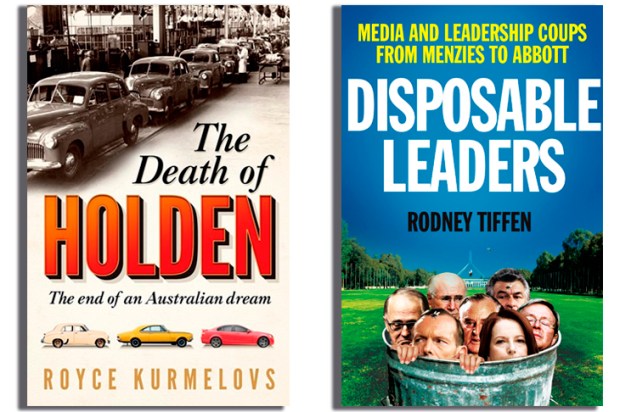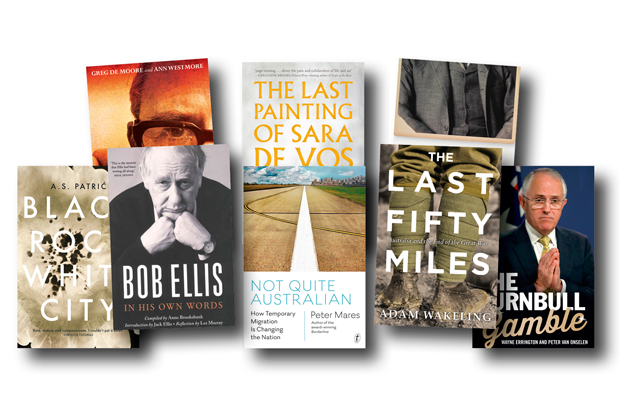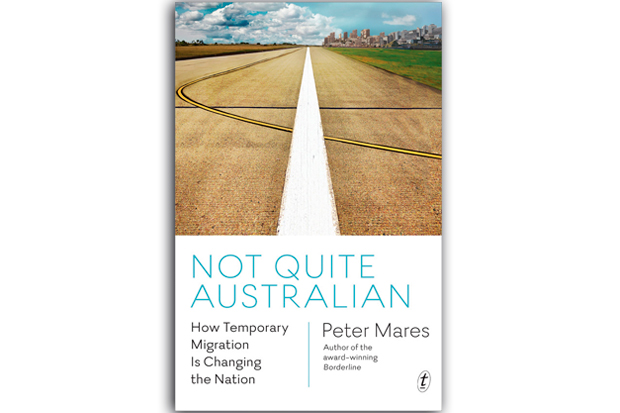The Rise of the Fifth Estate: Social Media and Blogging in Australian Politics
By Greg Jericho
Scribe, $29.95, pp 313
ISBN 9781921844935
The amount of virtual ink spilled by Australia’s bloggers and tweeters is truly astonishing, especially since it is by no means clear that they have achieved much. As Greg Jericho notes in this interesting, if flawed, study, a key problem in talking about the blogosphere is that it is an amorphous creature, a moving labyrinth stretching from informed, careful contributors to wacko conspiracy theorists, with a lot of mediocrity in between.
Jericho is, these days, a blogger for ABC Online’s The Drum. Previously, he wrote a blog under the pseudonym Grog’s Gamut, while working as a Canberra public servant in the film policy area. He started blogging, he says, because of his ongoing interest in politics, especially from a left-wing perspective. He was ‘outed’ by the Australian as part of an ongoing spat, and, indeed, spends quite a lot of the book trying to score points from News Ltd. It’s amusing, in its way, although if Jericho was trying to write a serious book it was probably not the right way to go.
A major point in the quarrel was that Jericho was hiding his real identity, a common practice in the blogosphere (although there are many professional journalists who blog or tweet under their real name, as Jericho does now). Jericho believes that anonymity is fine, although his reasoning is not easy to follow. He argues that most bloggers are simply doing something that they like to do, and mainly it’s all just a bit of fun.
But he also argues that blogging constitutes a real and necessary alternative to the mainstream media. He notes that much conventional political reporting, especially during campaigns, is so driven by spin, pomposity and unspoken alliances as to be almost useless, and much of what he says here makes sense. He cites a few examples of bloggers breaking news or providing genuine insights, although compared with the huge amount of regurgitation, venom and general silliness, those cases seem fairly minor.
It raises a key question: is blogging serious or not? Jericho, and a lot of other bloggers, seems to want it both ways. On the one hand, they see it as an important activity and worthy of the legal protections enjoyed by professional journalists. But then they say that anyone who takes a blog seriously deserves all they get, because a blog is, well, just a blog. In other words, freedom without consequences, privileges without responsibilities. No, it doesn’t work like that. You can be serious or you can be whimsical, but not both — not at the same time, anyway.
In this context, Jericho misses some crucial cases. Several of his Drum colleagues have made some remarkably insulting comments about Coalition figures, saying that one should be raped by a dog and another should contract an STD, for example. It would be interesting to know what Jericho, had he examined this sort of thing, would say. Hey, it was a joke? Or, you’re allowed to say nasty things as long as your target is a conservative politician? Or, what are you going to do about it, anyway?
Well, here’s a suggestion: if there is a change of government in September, the writers involved should be clearly and personally asked by the new ministers how they can possibly be trusted to do their jobs fairly and professionally, given the opinions they have expressed. Yes, actions have consequences. Grow up and realise it.
Jericho is on safer ground when he looks at the way that blogging and tweeting have been adopted by mainstream journalists. A few journalists have built large online followings, but most seem to see it as a supplement to their hard-copy work. It does have the advantage of being fast, and that was important in events like the knifing of Rudd. Some journalists specialise in live tweeting of media conferences, although the purpose is not entirely clear. To feed the addicts, presumably.
Several politicians are prolific tweeters. Malcolm Turnbull led the pack for a while, and was willing to enter into technical discussions about his portfolio (in 140 characters or fewer). He was overtaken by Ed Husic, although Husic seems to say a lot about not very much. Several politicians use social media to distribute speeches and propaganda, although there are occasional attempts to engage the virtual public — with mixed results, it should be said. The broad view seems to be that doing so takes a great deal of effort and offers little real return, and it is becoming ever more difficult to cut through the static. And the idea that any public figure is fair game for people who hide behind a childish nickname must be grating.
It is odd that some politicians, even when familiar with the drawbacks of the blogosphere, are very sensitive to the campaigns of organisations like Get Up! Ministers who would probably dismiss a paper petition snap to attention when an online one is presented to them. Perhaps they are simply enthralled by the technological immediacy. Perhaps they think that caving in will translate into votes. Unlikely, really: there is no hard evidence that any of this stuff shifts votes at the moment, although it might reinforce existing biases.
Jericho insists that blogging and tweeting are here to stay, and the political system will have to learn to deal with them. Maybe, or maybe the whole thing will eventually sink into a self-indulgent quagmire of twitspits and poor punctuation. Nevertheless, Jericho has broken some interesting new ground. His book should probably be treated with the same wariness with which one reads a blog, but it should not be ignored.
Got something to add? Join the discussion and comment below.
Get 10 issues for just $10
Subscribe to The Spectator Australia today for the next 10 magazine issues, plus full online access, for just $10.












Comments
Don't miss out
Join the conversation with other Spectator Australia readers. Subscribe to leave a comment.
SUBSCRIBEAlready a subscriber? Log in